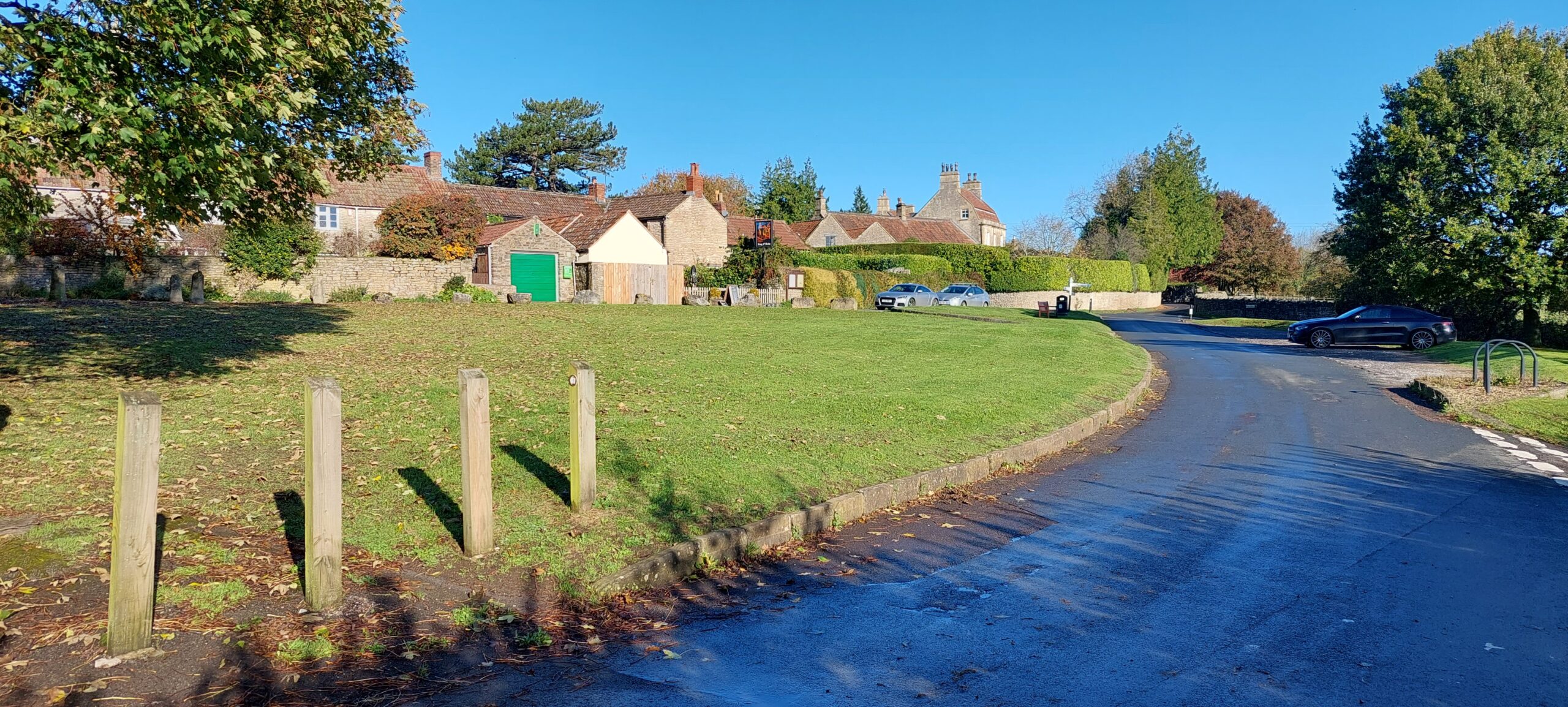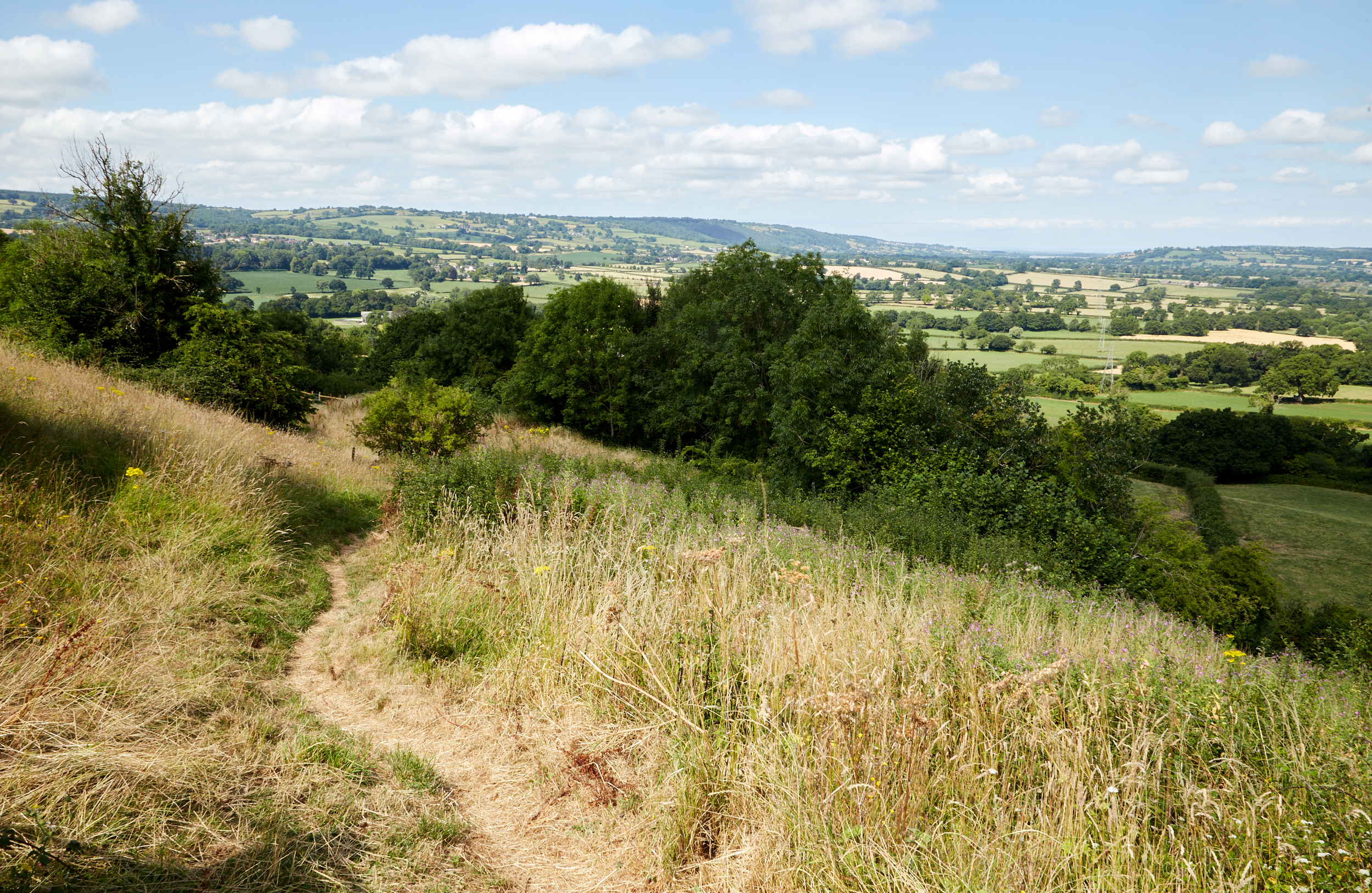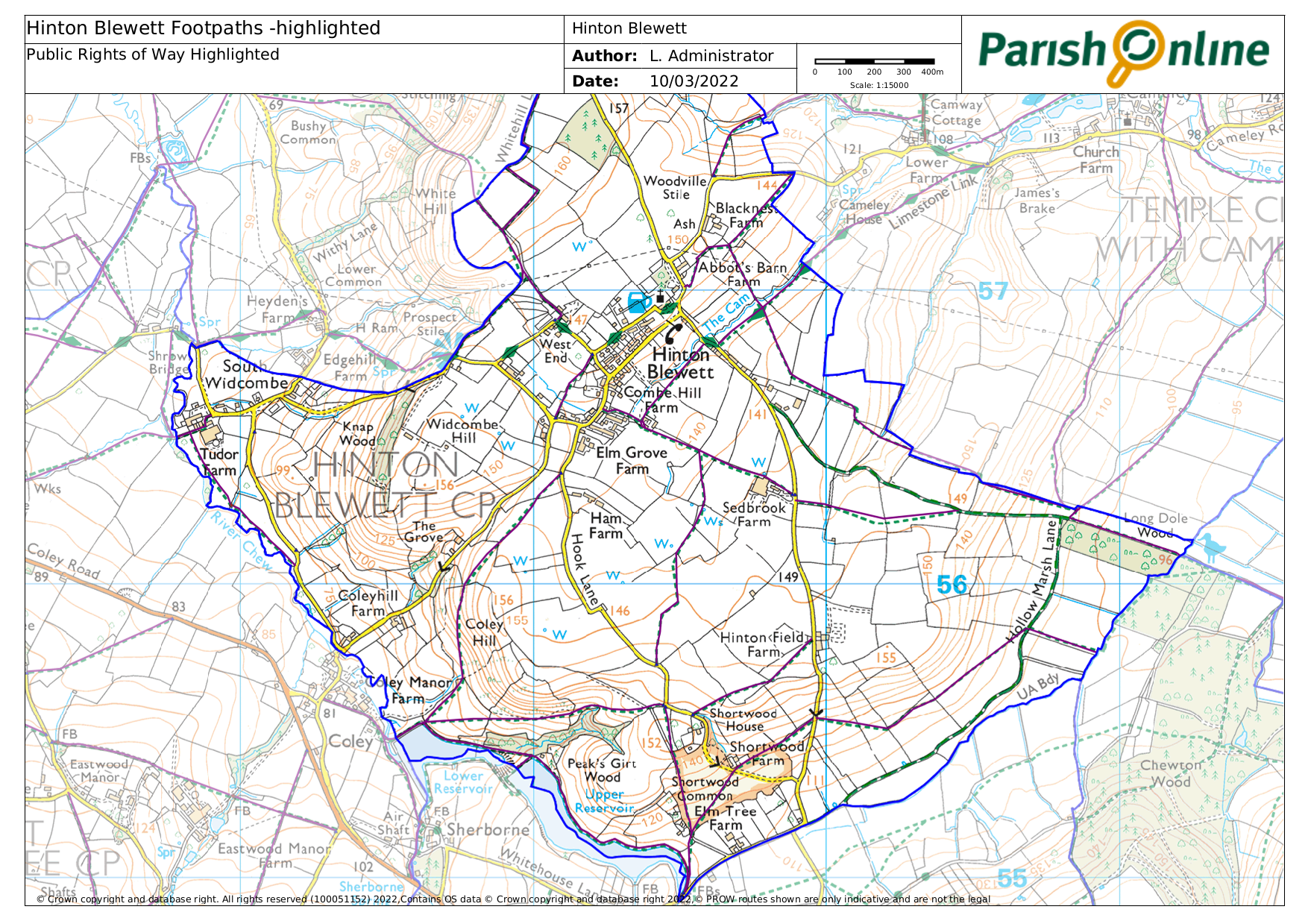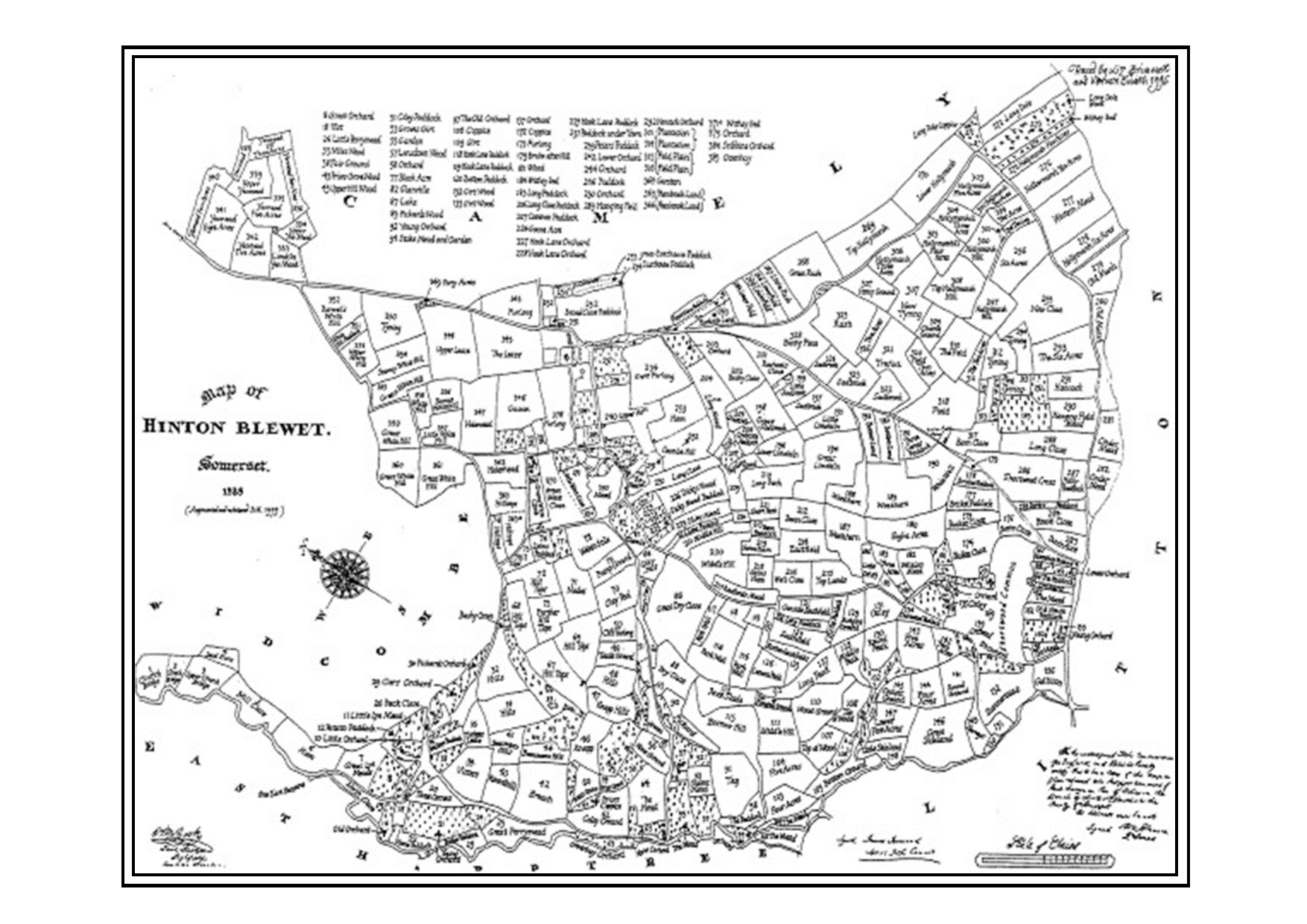The following is based in part on the original notes compiled by Brian Vincent, Coley, in August 1979 and taken from the leaflet ’Hinton Blewett: History of the church and village’
The small village of Hinton Blewett is sited on picturesque high ground at the foot of the Mendip Hills and remains relatively secluded, even today, due to the narrow, winding, unspoilt lanes by which it is approached.
Romano-British pottery and Roman coins provide evidence of an early settlement.
The name appears in the Domesday Book (1086) as Hantone:
‘Ralph holds of William (de Ow) HANTONE. In the time of King Edward (The Confessor 1042-1066) it gelded (was taxed) for eight hides (i.e. 8×80 acres). The arable is six carcucates and a half. In demeine (i.e. Manor House-land) are two carcucates and a half, and four servants, and seven villaines, and three bordars and four cottagers, with three ploughs. There is a mill of four shillings (20p) rent and sixty acres of meadow. A wood one mile long and one furlong (220 yards) broad. It was worth six pounds, now one hundred shillings (i.e. £5). Of this land Hugh holds of William half a hide (40 acres). It was worth three shillings (15p).’William de Ow (or Ewe) had been awarded many manors in return for his services to William the Conqueror at and after the battle of Hastings. He was later implicated with Ado, Bishop of Bayeux and Robert, Earl of Morton in endeavouring to place Robert Curthose upon the throne. When this was frustrated, he transferred his loyalty to Rufus. He, however, soon became unfaithful and thereby forfeited his life and his property although the latter was subsequently restored to his family. The ‘Ralph’ quoted in the Domesday book was Ralph Bluet and the family continued to hold Hantone when a subsequent Ralph was killed in 1265 at the battle of Evesham. He was a rebel and his land reverted to the Crown. However the Bluet family name survived and evolved to become the Blewett that we know today. The manor then subsequently passed to the Button (Bytton) family who held it until it passed to the Cheddre family by 1380 who held it until the mid 15th century. They were then succeeded by William Seward and his descendants. The Hippisleys held it briefly before the manor was sold to the Stocker family of Chilcompton, a member of which sold it to Mr William James of East Harptree, who possessed it during the latter part of the 18th century. By 1702 ‘Hanton Bluet’ had become ‘Henton Blewet’ or ‘Henton Blewett’. The first part of the name eventually became established as Hinton and has been so for at least 250 years. It was from the Bluet family that the village acquired the latter part of its name although the spelling has continued to vary right up to the present day. On many old maps the village is called Cold-Hinton, and this name was referred to as an alternative up until the 18th century.



